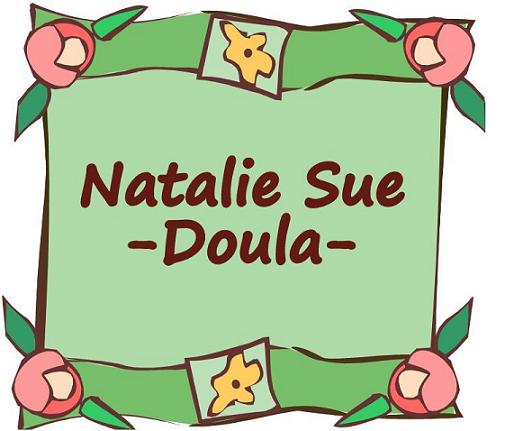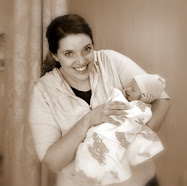In Your Arms, Crying Heals the Hurt
January 1, 2010
by Patty Wipfler, Hand in Hand Parenting
There are many things our babies and toddlers cry about that can be and should be fixed right away. A diaper is taped too tight; a toy pinches a child’s finger; she is hungry; she has awakened and can’t see where you are. We feel powerful as parents when our child’s cry alerts us to a situation we can remedy. And our quick response is part of how an infant knows that she is important in our lives. It always makes sense to respond to a crying child. It always makes sense to run through your checklist of possible causes, and to fix what needs to be fixed. And, of course, consult your physician if your child does not look like she is thriving, or if you notice some unusual condition, whether she is crying or not.
Sometimes, there’s nothing you can fix
But there are things our babies and toddlers cry about that we cannot fix. Babies cry about their gas pains, about having their diapers changed, and when they teethe. Annoyances like these come with being a baby. Our caring and attention is important while a child is going through this kind of minor trial, but, as we’ll explain below, full force fixing mode is not really required. And then there are the things a baby objects to that pose no threat to her at all. For instance, sometimes babies cry when we disappear into the shower, when a friendly stranger approaches, or when we put them down to crawl or walk. Many babies develop a hatred of their car seat. Some parents decide to go for days without a shower, or to carry their baby all the time, in an effort to remedy this kind of crying. Life gets harder, and parenting less enjoyable. But when a baby cries about something that’s not actually threatening, or something that is an unavoidable annoyance, she’s engaged in a natural and important endeavor. She’s having some feelings, and telling you about them. She’s communicating that she doesn’t feel OK, at a time when things actually are as good as they can be. This is the kind of time you can safely relax and listen. Your child needs you close, relaxed, and unworried while she gives voice to her accumulated feelings of upset. She just needs to tell you about the downside of life as a very young child.
Like you, your baby has feelings
However sunny your child’s life may be, she has had some experiences that have been painful, confusing, frightening, or sad. Many times, your baby has good feelings and accurate perceptions: “I’m warm and safe next to Mommy.” “There’s my Daddy’s gentle voice. I’m loved!” And at times, your child has had negative feelings or inaccurate perceptions: “I’m alone in my bed. I can’t stand it.” “Daddy left the room—I’m abandoned!” “There is no safe person in the world except for Mommy.” When babies and toddlers don’t feel good, they cry in order to clear the tension they feel. We try to get them “settled down” with patting, bouncing, walking, pacifiers, and sometimes, the breast. We’ve been trained to believe that a baby will do better as soon as she is able to stop expressing her upset.
In your arms, crying heals the hurt
However, you’ll see that when you stop a baby from expressing feelings, she doesn’t actually feel better. She will look distant and glazed. She won’t be able to make eye contact. When you try to engage her, she will begin to cry again. This is a sign that her feelings are still on her mind. She needs to tell you how she feels and soak in your loving attention before she can be in full contact with you again.
A child cries when he/she needs to release emotional stress. When someone offers love and listens, crying heals the hurt. While bad feelings are being cried away, your love and support get through. Your caring fills cracks in your child’s confidence. Learning how to support your child while she tells you her troubles can be one of the most empowering lessons of parenthood.
It’s a lesson about the power you have to help your child overcome hardship. When she’s fed, clean and close, yet she’s upset, then there’s some emotional thorn in her side. Her system knows how to dislodge it. All she needs is the safety of your arms, and the sweetness in your face and your voice to carry her through. Once she has finished with her tears or tantrums, frightened trembling or yawning (which may occur in the middle of a good cry), she will relax. She’ll gaze at you, untroubled, because you have filled a deep need. You have connected with her. You’ve listened and let her tell you, in her powerful nonverbal way, what was on her mind. There’s nothing like being heard fully to settle a child’s mind, and help her feel loved.
Her mind clears
After a good cry, your baby will connect with you. And she will thrive. I have known children to be loved through a long, passionate cry, and then to come forth with a flurry of new words, or with their first attempts to crawl, or with a new friendliness toward strangers. Listening to feelings helps babies sleep more soundly, too. These are the kinds of significant improvements in your child’s confidence and ability that your listening can foster.
Parents need a listener, too
This kind of listening is difficult for a parent to do. It’s important not to try to take on the job alone. Pair up with another parent, perhaps your spouse or a friend so that you get listening time for yourself. For listening to the feelings of someone of any age opens the door for us to the most vulnerable side of a unique and important person. We are inevitably moved, and our own feelings beg to be heard, and released. A good laugh or a good cry with a friend refreshes our energy, and helps us feel less alone with the sacred trust and the hard work of loving our children well.



No comments:
Post a Comment